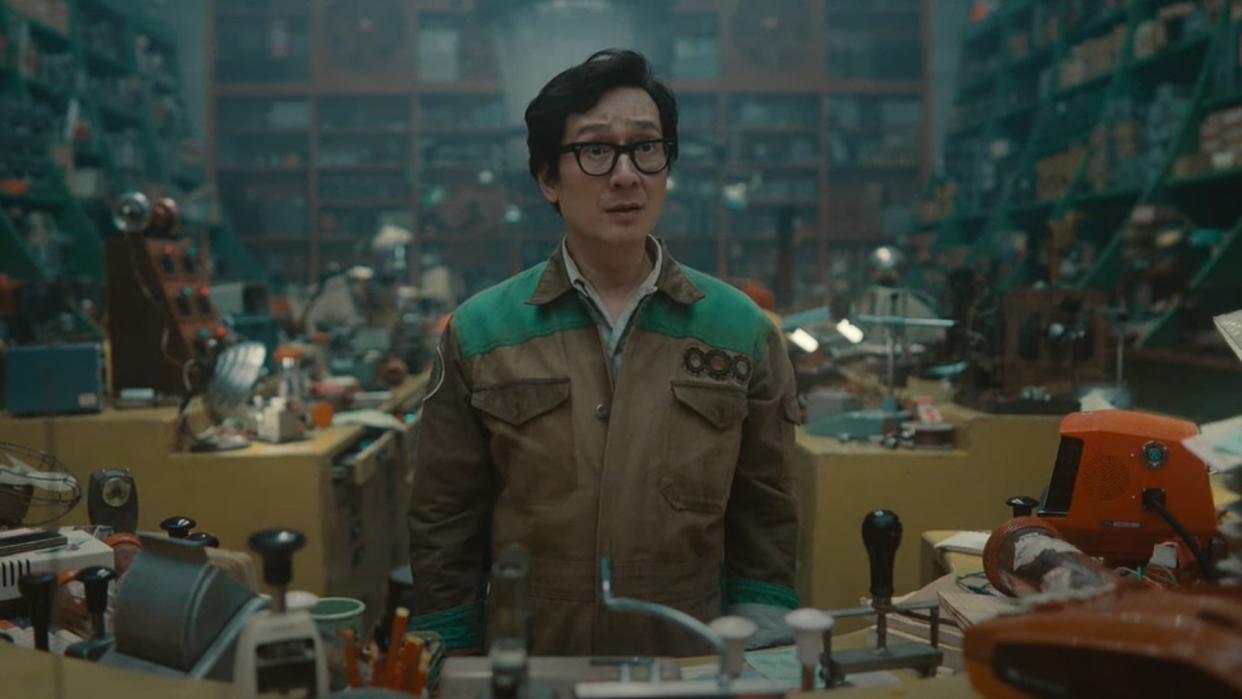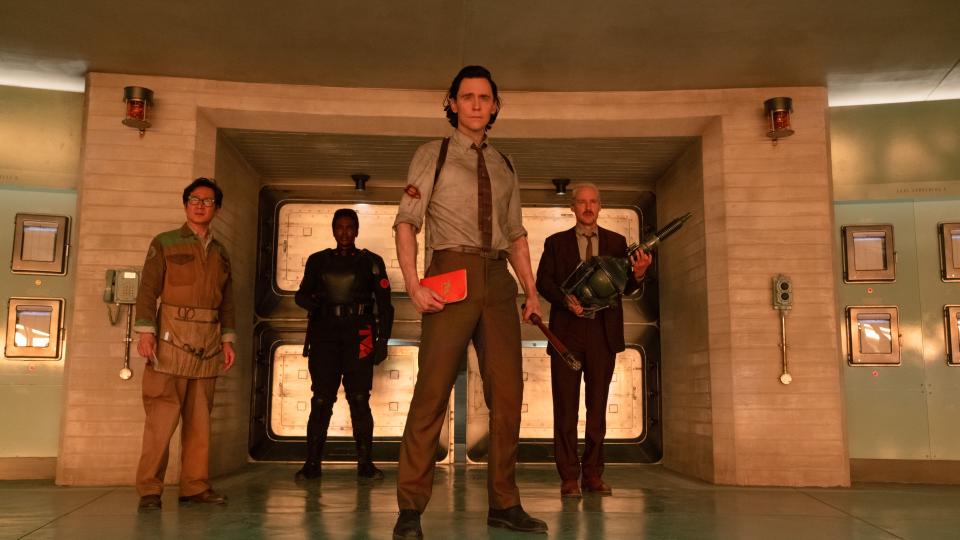Ke Huy Quan's brilliant first scene in Loki season 2 helped the team figure out the show's time travel rules

This article contains mild spoilers for Loki season 2 episode 1.
One episode into Loki season 2, and things have already gotten... very timey wimey. With Sylvie having killed He Who Remains in the season 1 finale throwing the Sacred Timeline out of whack, the new chapter opens with the titular hero trying to fix the TVA's Temporal Loom before it's overloaded with branches and well, basically, destroys everything.
But 'Ouroboros' isn't only concerned with timelines. Turns out, since that fateful day at the End of Time, Loki has been 'time-slipping', so his and Mobius's first task in season 2 is trying to stop that. To do so, they pay a visit to Ke Huy Quan's O.B., in a brilliant scene that proved pivotal in establishing the Marvel series' time travel rules, according to executive producer Kevin Wright.
"That was something in [head writer] Eric Martin's first draft of the script; that scene existed, almost fully formed as to what's on screen and it was a big 'aha' moment for us," he tells GamesRadar+. "It was like, 'Oh, you can do these brain teaser moments. If they're entertaining, fun, and visually simple to follow.'"
During their chat with O.B., who runs the Repair & Advancements department all by himself, Loki (Tom Hiddleston) time-slips back to 400 years prior, before Mobius (Owen Wilson) gave Ouroboros his nickname. As Loki in the past explains what's happening and insists on the TVA tinkerer's help, O.B. in the present suddenly starts "remembering" that he's seen time-slipping before and that, rather handily, he's already made just the device they need: Temporal Aura Extractor.

"It started in season 1, and it took a lot of whiteboards and a lot of diagrams," Wright laughs, when we ask how they keep track of all the sci-fi shenanigans. "That Miss Minutes video at the start of season 1, I think, was the culmination of a lot of people's brain power going, 'How do we most elegantly just tell the way that time works in the show?' Oftentimes that was about making it as simple as possible with the aid of visuals.
"Going into season 2, we deliberately made it harder for ourselves; we're exploring multiverses, we're looping through time, we're doing all this," he continues. "So, we always would go back to the guiding principles of season 1, try to expand them outward. We would write really detailed explanations of how all this works, then cull them down and try to present the idea with as few words as possible. So, a character might say something in a sentence or two, then a graphic could help? We figured that was going to be better to the narrative that we're telling than really trying to lay it all out where, maybe, we trip ourselves up on logic or things like that."
Loki is hardly the first MCU title leaning into such complicated themes, what with Iron Man, Captain America, and co. using time travel to beat Thanos in Avengers: Endgame and Doctor Strange getting swept up in cosmic chaos in Multiverse of Madness. But given that it'll presumably act as a springboard for future big bad Kang and what's to come in the future of the franchise, there's no wonder Wright was so keen to figure everything out so clearly.
"We would always have this paradigm of intrigue," he says. "Intrigue and simplicity versus, like, homework and confusion. The second that it starts to go to that other way, we know something's wrong, and we've got to find a way to simplify what we're trying to do."
Loki season 2 episode 1 is streaming on Disney Plus now. Hear more of our interview with Kevin Wright on the latest episode of the Inside Total Film podcast. For more on the show, check out our spoilery deep-dives on:
Victor Timely comic book history explained
Judge Renslayer comic book history explained
What is time-slipping?
